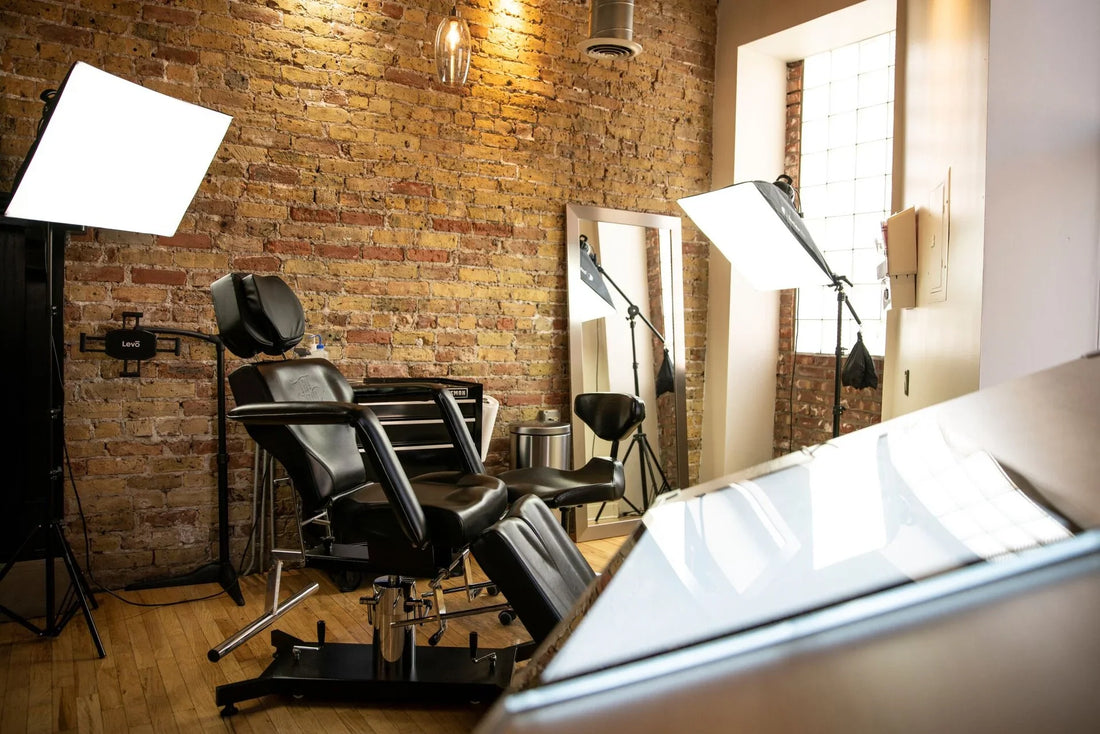
10 Mistakes New Tattoo Shop Owners Make (And How to Avoid Them)
Opening a tattoo shop is a dream come true for many artists. It's the ultimate expression of independence, creativity, and professionalism. However, the leap from being a tattoo artist to running a tattoo business is not always smooth. Many first-time studio owners make critical mistakes that hurt their growth—or worse, lead to business failure.
Whether you're planning to open a tattoo shop or just started one, learning from common mistakes can save you time, money, and frustration. Here are the top 10 mistakes new tattoo shop owners make—and how to avoid them.
1. Skipping the Business Plan
Many new tattoo entrepreneurs dive straight into renting a space and buying tattoo equipment, without a clear business plan. Without solid financial projections, marketing strategies, or a pricing structure, you're flying blind.
How to avoid it:
Before signing a lease or buying supplies, sit down and create a detailed business plan. Include your target audience, startup costs, revenue goals, pricing model, and marketing approach. If you're unfamiliar with planning, consider templates from the SBA (Small Business Administration) or hire a consultant familiar with the tattoo industry.
2. Choosing the Wrong Location
Foot traffic, visibility, accessibility, and local regulations all play a role in your tattoo studio’s success. Some artists choose locations that are too remote, too expensive, or in areas with strict zoning laws.
How to avoid it:
Research your city’s zoning laws before committing. Look for a space with steady foot traffic and enough room for future expansion. Proximity to complementary businesses (like piercing studios, barbershops, or tattoo supply stores) can also help draw in customers.
3. Ignoring Legal Requirements and Licensing
Operating without the proper tattoo license, health inspections, or permits can shut your shop down before it even starts.
How to avoid it:
Check your state and local tattoo regulations carefully. Most places require licenses for both the shop and individual artists, plus regular health inspections. Invest in proper sanitation systems and ensure all staff are trained in bloodborne pathogen safety. Keep your paperwork in order to avoid legal issues down the road.
4. Underestimating the Cost of Setup
Setting up a professional tattoo studio is more expensive than many people realize. Beyond tattoo machines and ink, you’ll need workstations, lighting, sterilization equipment, POS systems, furniture, insurance, and more.
How to avoid it:
Budget realistically. A basic tattoo shop setup can cost anywhere from $10,000 to $50,000. Build a detailed list of initial and recurring expenses. Don’t forget hidden costs like tattoo insurance, maintenance, and software subscriptions.
5. Using Low-Quality Tattoo Equipment
Trying to cut corners with cheap tattoo machines, inks, or power supplies can backfire. Low-quality tools lead to inconsistent results, longer healing times, and higher risk of infections—hurting your reputation.
How to avoid it:
Invest in reliable, professional-grade tattoo kits, needles, and hygiene supplies. Always purchase from reputable tattoo supply brands. Your tools reflect your standards—and your clients will notice.
6. Hiring the Wrong Team
Many shop owners hire friends or apprentices without verifying skills, attitude, or professionalism. A poor hire can damage your studio's culture and reputation.
How to avoid it:
Vet every artist and staff member thoroughly. Check portfolios, verify licenses, and hold a trial period if necessary. Align on values like cleanliness, customer service, and artistic integrity. Your team is your brand—choose wisely.
7. Lack of Tattoo Shop Marketing
“Build it and they will come” doesn’t work in today’s competitive market. Many tattoo shops rely solely on word-of-mouth and ignore online promotion, losing out on potential customers.
How to avoid it:
Create a strong online presence from day one. Build a Google Business Profile, optimize your website for tattoo-related SEO keywords, and stay active on social media. Share photos of your work, run promotions, and collect customer reviews. Consider running localized ads or collaborating with influencers.
8. Poor Client Communication and Booking Systems
Miscommunication leads to no-shows, confusion, and unhappy customers. Relying on DMs alone for booking is risky and inefficient.
How to avoid it:
Invest in a reliable booking system like Calendly, Square, or TattooPro. Automate reminders and offer clear pre-appointment instructions. Use email or SMS to follow up and re-engage clients. Clear communication builds trust and increases rebooking rates.
9. Neglecting Branding and Interior Design
Your tattoo studio’s vibe matters. Bland interiors, inconsistent branding, and lack of visual identity can make your business forgettable—even if your art is amazing.
How to avoid it:
Create a cohesive brand identity, including your logo, color palette, and tone of voice. Match your interior design to your style—whether it’s sleek modern, gritty industrial, or cozy vintage. First impressions count, especially for walk-ins.
10. Not Treating It Like a Real Business
Some new owners think talent alone will make the business succeed. But a great tattoo artist isn’t necessarily a great business owner.
How to avoid it:
Take the time to learn the business side of tattooing. Study pricing strategy, taxes, inventory management, and team leadership. Take online courses or join local small business associations. If needed, delegate admin tasks to professionals (e.g., accountant, social media manager) so you can focus on art while the business runs smoothly.
Final Thoughts: How to Start a Tattoo Business Successfully
Starting a tattoo business isn’t just about talent—it’s about smart planning, strong branding, legal compliance, and consistent client service. Avoiding these common mistakes can fast-track your success and help you build a shop that attracts loyal clients, talented artists, and a lasting reputation.
If you're planning to open a tattoo studio, don’t rush it. Research thoroughly, plan strategically, and build a business that reflects your artistic values and professional standards. The future of your tattoo career depends on it.
Bonus Tips: Useful Resources for Tattoo Shop Owners
- Tattoo Equipment Starter Kits: Ideal for setting up a new studio on a budget. Look for reputable suppliers that include wireless machines, power supplies, and sterilization accessories.
- Business License Lookup Tools: Many states offer online license verification platforms to check your registration.
- Tattoo Insurance Providers: Look into companies like Tattoo Insure, Beauty & Bodywork Insurance, or Hiscox for general liability coverage.
- Tattoo Shop Management Software: Tools like Inkbook or Schedulicity can streamline bookings, reviews, and team schedules.
